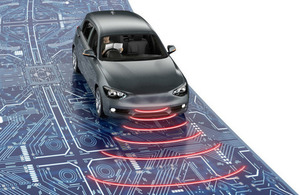New cyber security standard for self-driving vehicles
New cyber security standard for developing self-driving car technology released.

- car industry leaders help develop guidance on cyber security
- new guidance to help protect self-driving cars from hacking
- UK blazing the way by publishing first standard of this type
The UK’s position as a world leader in the development of self-driving vehicles has been boosted by a pioneering new cyber security standard, published by the British Standards Institute today (19 December 2018).
Working with academics and experts from leading businesses in the car industry including Jaguar Land Rover, Ford and Bentley, as well as the National Cyber Security Centre, and funded by the Department for Transport, the British Standards Institute developed the guidance to set a marker for those developing self-driving car technology. The UK market for connected and automated vehicles is forecast to be worth up to £52 billion by 2035.
Jesse Norman, Future of Mobility Minister, said:
As vehicles get smarter, major opportunities for the future of mobility increase. But so too do the challenges posed by data theft and hacking.
This cyber security standard should help to improve the resilience and readiness of the industry, and help keep the UK at the forefront of advancing transport technology.
This follows the government’s publication last year which set out key principles of cyber security for automated vehicles, such as the expectation that systems should be designed to be resilient to attacks and respond appropriately when its defences fail.
Car manufacturers will be able to use the new standard published today to demonstrate that they are following these principles.
Roads media enquiries
Media enquiries 0300 7777 878
Switchboard 0300 330 3000